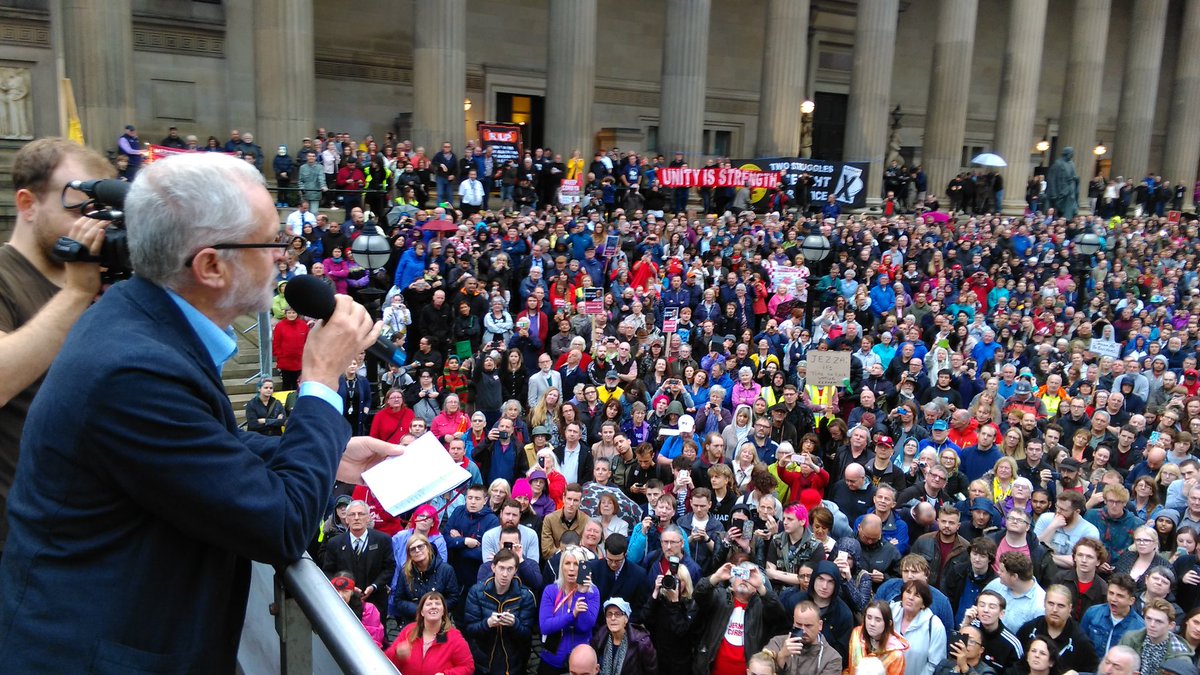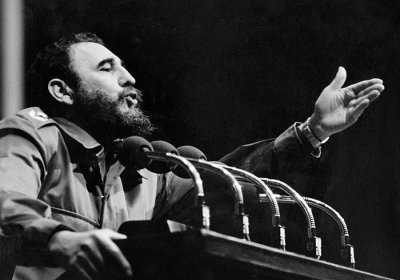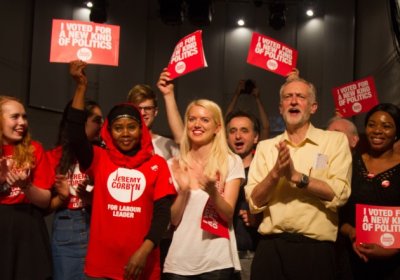Israel is intensifying its efforts to crack down on activists working for freedom, justice and equality for Palestinians.
On August 7, interior minister Aryeh Deri and public security minister Gilad Erdan formed a new inter-ministerial task force that will, as the The Times of Israel reported, “target supporters of the boycott, divestment and sanctions (BDS) movement”.
The task force aims to prevent the entry of foreign activists allegedly affiliated with groups that support BDS. It also aims to expel those who have already entered territories under Israeli control.
Imperialism & war
Since the mid 1930s, self-styled progressives and many socialists have often justified supporting one of the United States' two major capitalist parties by claiming that it is the “lesser evil” compared to the other one.
The “lesser evil” is frequently the Democratic Party. In this year's election, the “lesser evil” is the war hawk and neoliberal Hillary Clinton as opposed to right-wing populist Donald Trump.
 Two peace activists, Greg Rolles and Shane Anderson, locked themselves to Lockheed Martin's main gates on August 11, blocking the entrance to the Dandenong research facility in an attempt to disrupt the making of missiles for military drones.
Two peace activists, Greg Rolles and Shane Anderson, locked themselves to Lockheed Martin's main gates on August 11, blocking the entrance to the Dandenong research facility in an attempt to disrupt the making of missiles for military drones.
Fidel Castro, the historic leader of the Cuban Revolution, turned 90 on August 13. Progressive, anti-war and social justice forces across the world join in the celebration of the life of one of the world's most influential and significant leaders.
Despite the rain, about 100 people rallied in Hyde Park on August 6 to declare, "Hiroshima Never Again," on the 71st anniversary of the US atomic bombing of the Japanese city of Hiroshima in 1945. The themes of the rally were: "Ban nuclear weapons," and "No nuclear waste dumps in Australia".
A dramatic round of traditional drumming by a local Japanese cultural group and a set by the band Urban Guerrillas kicked off the rally.
As socialist Labour leader Jeremy Corbyn addresses enthusiastic mass meetings across the country it appears clear — despite attempts by Labour right to sabotage the vote and deny as many Corbyn backers the right to vote as possible — the anti-austerity leader will easily be returned as leader.
In a newly released interview conducted last year with Chelsea Manning, the jailed US whistleblower said she was “always afraid” of her government, which sentenced her to decades behind bars in a military prison.
“I am always afraid, I am still afraid of the power of government,” said Manning, who leaked thousands of classified documents to Wikileaks in 2010, in an interview with Amnesty International published by The Guardian on August 3.
Philippines President Rodrigo Duterte, elected in May on a platform that combined pledging to defend ordinary citizens against a corrupt elite with carrying out extreme repression against drug users and other “criminals”, gave his inaugural state of the nation address on July 25. The statement below was released by the socialist Party of the Labouring Masses in response.
* * *
British Labour leader Jeremy Corbyn has pledged to “rebuild Britain” on August 4 by creating 1 million jobs and homes. The socialist politician put full employment and house building at the heart of his bid for re-election as Labour's leader in a 10-point plan for the country.
WikiLeaks release of nearly 20,000 e-mails and more than 8,000 attachments from seven officials on the Democratic National Committee (DNC) just before the party's convention meant a quick end for Debbie Wasserman Schultz's position as DNC chair, after the e-mails revealed favoritism toward the Clinton campaign and organized hostility to rival Bernie Sanders.
But if the emails--and the convention itself--show anything, it's the undemocratic nature of the whole Democratic Party, and firing one official won't come close to fixing that.
 Thousands turn out to hear Labour leader Jeremy Corbyn in Liverpool on Augist 1.
If you watch footage of Labour leader Jeremy Corbyn out and about — whether addressing rallies from fire engines, squeezing through scrums of reporters or posing with large vegetables — you'll probably spot some of the same faces nearby.
Thousands turn out to hear Labour leader Jeremy Corbyn in Liverpool on Augist 1.
If you watch footage of Labour leader Jeremy Corbyn out and about — whether addressing rallies from fire engines, squeezing through scrums of reporters or posing with large vegetables — you'll probably spot some of the same faces nearby.
- Previous page
- Page 152
- Next page








 Greens presidential candidate Jill Stein.
Greens presidential candidate Jill Stein.
